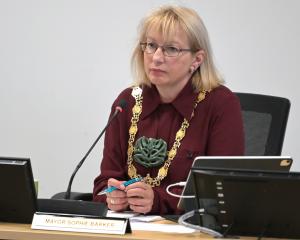A government proposal to make fluoridation the responsibility of district health boards instead of councils is excellent news for many children.
Given the overwhelming weight of expert and official opinion in favour of adding fluoride to water supplies, it seems almost inevitable health boards will back the use of the chemical.
It is, generally, not the children of the well-educated and well-off who will benefit.
Through knowledge, diet, perhaps fluoride toothpaste and attention to dental issues, the privileged are better off in various ways.
Rather, it is the children of the poor where tooth decay is rampant.
It is they who suffer unnecessary pain, bad oral health and other health complications.
A vociferous minority argues about mass medication without consent and individual choice.
It makes claims about various ill effects and picks out "evidence'' with which to pressure councillors.
It would, however, be a dereliction of duty not to undertake this public health intervention.
Hundreds of thousands of New Zealanders should not be consigned to needless misery and expense.
Although councils operate water supplies, it is the district health boards which have the primary role for public health issues.
They are also better placed to consider the "facts'' and not be swayed by intense and emotional lobbying.
Fluoridation began in the United States in the 1950s.
It has been listed by the United States Centres for Disease Control and Prevention as one of the 10 great public health achievements of the 20th century, and that is what it is.
National and international health and dental organisations back "topping up'' the fluoride naturally occurring in what is a means to making teeth more resistant to decay.
This is not to say debate is unwarranted, and periodic monitoring of the evidence is judicious.
Decisive action now, based on best current knowledge, does not preclude an open mind should significant and credible new research emerge.
Such a scientific review took place on behalf of several councils as recently as 2014.
It was commissioned by the Prime Minister's chief science adviser, Sir Peter Gluckman, and the president of the Royal Society of New Zealand and former University of Otago vice-chancellor and preventive medicine specialist, Prof Sir David Skegg.
Claims about increased risks of cancer, musculoskeletal and hormonal disorders and brain development effects were examined by a panel of experts and found to be unsupported by scientific evidence.
The only side effect was mild dental fluorosis, not a serious concern, and this was thought to have been caused by swallowing fluoride toothpaste.
Fluoride Free New Zealand calls the proposal "nationwide fluoridation by stealth''.
It could, though, be argued the legislation, due to be in place by 2018, is not even by stealth because it would be a huge surprise if boards did not adopt mandatory fluoridation.
That is positive for all the children of New Zealand rather than just those in the 60% at present covered by fluoridated water.
Although fluoridation might be unnecessary in an ideal world, the seriousness of dental decay in this country and the established effectiveness of the practice means the community should forego individual choice in this matter.
University challenge
The growth in first-year numbers at the University of Otago must be a relief for both the university and Dunedin.
In the intense tertiary battle for first-year students, Otago's first-year domestic enrolments are up 6.7% (235 equivalent full-time students) on the corresponding time last year.
Concurrently, international full-fee enrolments are up 5.8% (65 efts), a welcome increase after several disappointing years.
Domestic first-year numbers had been down for the past two years, and the resulting "pipeline'' effect means the overall roll is much the same as before.
Dunedin is so heavily dependent on the health of the university, it can be thankful the university has met the challenge to reverse the earlier roll declines.












